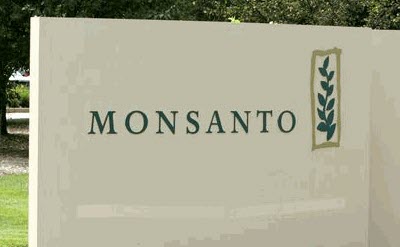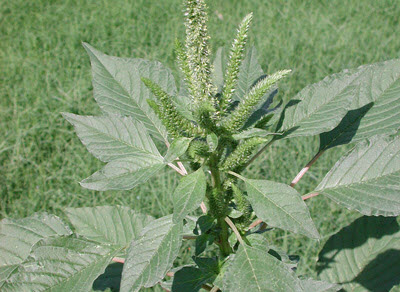A new report shows an intense worldwide grassroots opposition to the dominance of multinational biotech companies like Monsanto who make big promises but fail to deliver.
|
|
|||
|
Not a mere hypothetical disagreement. The OSGATA lawsuit against Monsanto moved forward, despite the lower court dismissal, as more scholars and organizations echo concerns over GMO contamination and onerous lawsuits. Monsanto’s genetically modified soybeans to be used for cooking oil containing lower levels of saturated fats and higher levels monounsaturated fats were approved last year by U.S. regulators. Yet, while Monsanto prepares for product launch, important safety questions remain unanswered. Organic and conventional family farmers, small and family-owned seed companies, and agricultural organizations recently filed an appeal in the case of OSGATA et al v. Monsanto, which was dismissed by a Federal Court in New York on February 24, 2012. The Federal District Court in New York dismissed the organic and conventional farmers’ complaint against Monsanto. But despite the legal loss, the lawsuit leaves a beneficial legacy. This past November, the U.S. Environmental Protection Agency report cited “severe efficacy issues” with Monsanto’s Bt corn after multiple states reported “unexpected pest damage.” Monsanto’s stronghold over seed patents was reinforced recently when an appeals court affirmed a prior ruling against a farmer, this time for buying seeds as “commodity” seeds from a local grain elevator. Farmers and agricultural organizations demanded their right to be heard after Monsanto asked the court to dismiss the lawsuit challenging the company’s aggressive enforcement of genetically modified seed patents. Monsanto is forced to backtrack on a lawsuit alleging that two Erie area farmers saved patented seeds. We look at that and, also, the latest on Anonymous hacking attack against Monsanto “Society stands on the precipice of forever being bound to transgenic agriculture and transgenic food” reads the first sentence in the amended complaint filed by farmers, environmentalist, researchers and consumer groups against Monsanto. New plaintiffs strengthen the resolve to stand up to Big M. Recently, Sec. of Agriculture Tom Vilsack compared biotechnology and sustainable agriculture to two sons, for whom he declared equal love. Read on to learn why biotech has in fact been the agency’s favorite “son.” Lawsuit by organic groups asks Federal court to invalidate Monsanto’s patents and to end Monsanto’s practice of suing farmers over GMO contamination. Conventional and organic farmers and environmental groups filed a lawsuit challenging the USDA’s decision to permit the unrestricted commercial release of genetically engineered alfalfa. A California Appeals Court reversed a lower court’s ruling which would have required the destruction of genetically modified sugar beet seedlings planted in September 2010. The usual and unusual politics surrounding the deregulation of genetically engineered alfalfa. A Federal Court ordered the removal of genetically modified beet seedlings. After USDA and Monsanto appealed, the Ninth Circuit Court of Appeals is delaying the removal until a hearing that was rescheduled for February. While Monsanto shelved its research on genetically modified wheat in 2004 amid broad opposition from consumers and growers, it’s back at it again. While still under investigation for anti-competitive patent practices and under a threat of an anti-trust case against them, Monsanto is busy tackling other issues. Superweeds are invading fields across the globe. Before we start looking blaming farmers, however, careful attention must be paid to government agencies and seed companies and how the two partner-up to foster the conditions that lead to superweeds. Federal Court finds that Plaintiffs are likely to succeed on their claims that the Animal and Plant Health Inspection Services illegally permitted the planting of genetically engineered sugar beet. Monsanto says it’s cutting about 650 to 700 more jobs as it continues to restructure its business, according to a story we first read on NPR on August 31st 2010. In depth analysis of Judge White’s decision which rescinded USDA’s and APHIS’ decision to deregulate Roundup Ready sugar beets without conducting an Environmental Impact Statement. |
|||
|
 |
|||












